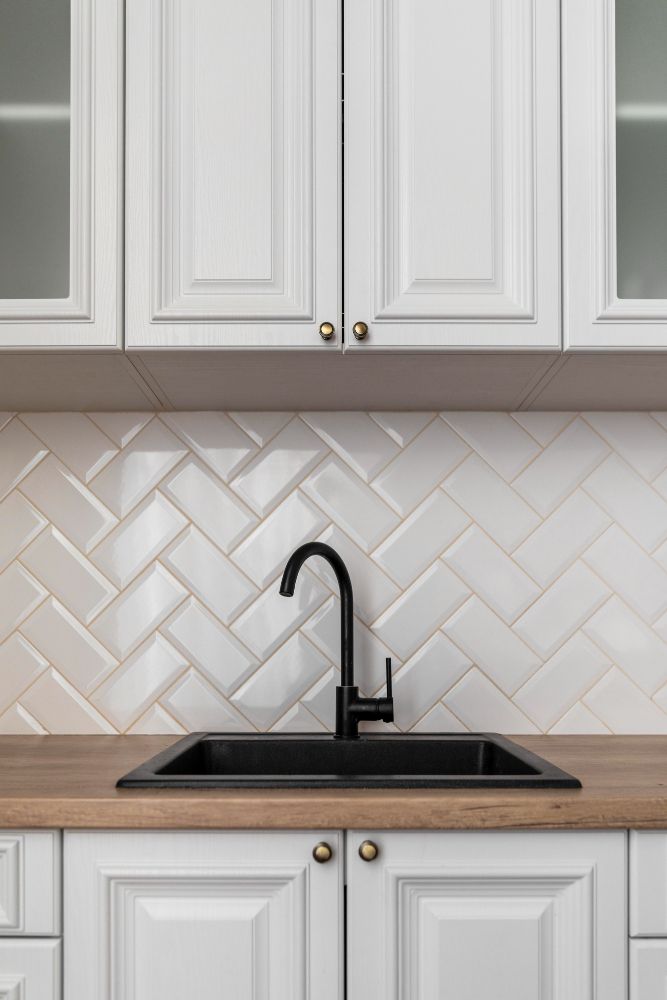
Why Does My Kitchen Sink Smell?
It’s Hard to Feel Like You’re Really “Home Sweet Home” When You Have Foul Odors Coming Up from Your Kitchen Sink. We’re Here to Help Diagnose Your Smelly Kitchen and Restore Your Happy Place.
Why Does My Kitchen Sink Smell? Unveiling Culprits and Solutions
Is that foul odor coming from your kitchen sink driving you nuts? You're not alone. A stinky kitchen sink is a common problem many homeowners face, and it can be quite off-putting. Crossroads Plumbing is here to help you uncover the culprits behind that foul smell and provide you with effective solutions. Here are a few of the top sources of kitchen sink smells.
Food Debris, Oil and Residue
The most common culprit behind foul odors in the kitchen sink is the accumulation of food debris and residue. As we use our sinks for washing dishes, preparing meals, and disposing of food scraps, tiny particles and oily residues can get trapped in the drain. Over time, this organic matter begins to decompose, releasing unpleasant smells. The warm, moist environment of the sink provides the perfect breeding ground for bacteria to thrive, further contributing to the malodorous conditions. The longer the food debris and residue are left to fester, the more difficult it becomes to eliminate the unpleasant smells. Addressing this issue promptly is crucial to maintaining a fresh-smelling and hygienic kitchen sink.
Clogged or Blocked Drainpipe
Clogs can occur due to a variety of reasons, such as the accumulation of grease, hair, soap scum, or even foreign objects that have been accidentally dropped down the drain. Over time, these materials can coagulate and form a solid obstruction, preventing water from draining properly. As the water sits in the sink, it can become stagnant and begin to emit foul smells. In some cases, the clog may be deeper within the plumbing system, causing the odor to be more persistent and difficult to address. Attempting to clear the clog yourself with a plunger or drain snake may provide temporary relief, but if the issue persists, it may be necessary to call in a professional plumber to identify and resolve the underlying problem.
Bacteria and Mold Growth
Bacteria thrive in moist, nutrient-rich environments, and the sink provides an ideal habitat for their proliferation. As bacteria multiply, they can form a slimy, adhesive layer known as a biofilm, which can coat the interior surfaces of the sink and drain. This biofilm can trap food particles, grease, and other organic matter, providing a constant source of nutrients for the bacteria. As the bacteria break down these materials, they release foul-smelling compounds, such as hydrogen sulfide, which can give the sink a rotten egg-like odor. Certain types of bacteria, such as Pseudomonas and Enterobacter, are commonly found in kitchen sinks and are known for their ability to produce unpleasant odors. Regular cleaning and disinfection of the sink and drain are essential for preventing and controlling bacterial growth and biofilm formation.
Gas and Plumbing Issues
In some cases, the foul odor emanating from the kitchen sink may not be directly related to the sink itself, but rather a problem with the plumbing system or the sewer line. Sewer gas, which is a mixture of various gases produced during the decomposition of organic matter in the sewer system, can sometimes find its way back into the home through the sink drain. If there is a problem with the plumbing, such as a broken or dried-out P-trap, it can allow sewer gas to enter the home, resulting in a foul, sewage-like odor. If the P-trap is damaged or has dried out, this barrier is compromised, and sewer gas can easily make its way into the kitchen.
Issues with the main sewer line, such as a blockage or a crack in the pipe, can also cause sewer gas to back up into the home, affecting the kitchen sink. In such cases, the odor may be more persistent & widespread and may require professional plumbing services to identify and address the underlying problem. As you can see, the question “Why Does My Kitchen Sink Smell?” could be a minor problem with DIY solutions, or it could be a huge undertaking that only an experienced professional can solve. If you’re unsure, our people are available for on-site estimates, wherever you are in the West Georgia or Metro Atlanta area.

Skip the Line and Avoid the Service Charge!
For a quick & free estimate, text a picture of your plumbing problem along with your name, email, and address and one of our on-call plumbers will take care of you!
Crossroads Plumbing - Professional Plumbing Services for Kitchen Odors
Identifying And Addressing Underlying Plumbing Issues
If the foul odor in your kitchen sink persists despite your DIY efforts, it may be time to call in a professional plumber. A qualified plumber can perform a thorough inspection of your plumbing system to identify any underlying issues that may be contributing to the odor problem.
At Crossroads Plumbing, our technicians may use specialized tools, such as a camera inspection system, to examine the condition of the drainpipes and identify any blockages, cracks, or other problems that could be causing the odor. This can help us pinpoint the root cause of the issue, whether it's a blocked drain, a problem with the P-trap, or a larger issue with the sewer line.
Once the underlying problem has been identified, our licensed plumbers can recommend and implement the appropriate solution, such as clearing a clogged drain, repairing a damaged P-trap, or addressing a problem with the main sewer line. This type of intervention can help ensure that the source of the odor is properly addressed and will be prevented from recurring in the future.

